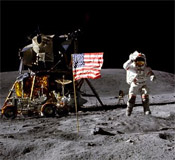United States National Aeronautics and Space Administration

United States National Aeronautics and Space Administration: Publications
Document Type
Article
Date of this Version
2011
Citation
Physics Procedia 20 (2011) 300–307
Space, Propulsion & Energy Sciences International Forum - 2011
Abstract
We are developing a small cold temperature instrument package concept that integrates a cold temperature power system with ultra low temperature ultra low power electronics components and power supplies now under development into a ‘cold temperature surface operational’ version of a planetary surface instrument package. We are already in the process of developing a lower power lower temperature version for an instrument of mutual interest to SMD and ESMD to support the search for volatiles (the mass spectrometer VAPoR, Volatile Analysis by Pyrolysis of Regolith) both as a stand alone instrument and as part of an environmental monitoring package. We build on our previous work to develop strategies for incorporating Ultra Low Temperature/Ultra Low Power (ULT/ULP) electronics, lower voltage power supplies, as well as innovative thermal design concepts for instrument packages. Cryotesting has indicated that our small Si RHBD CMOS chips can deliver >80% of room temperature performance at 40K (nominal minimum lunar surface temperature). We leverage collaborations, past and current, with the JPL battery development program to increase power system efficiency in extreme environments. We harness advances in MOSFET technology that provide lower voltage thresholds for power switching circuits incorporated into our low voltage power supply concept. Conventional power conversion has a lower efficiency. Our low power circuit concept based on ‘synchronous rectification’ could produce stable voltages as low as 0.6V with 85% efficiency. Our distributed micro-battery-based power supply concept incorporates cold temperature power supplies operating with a 4V or 8V battery. This work will allow us to provide guidelines for applying the low temperature, low power system approaches generically to the widest range of surface instruments.


Comments
This article is a U.S. government work, and is not subject to copyright in the United States.